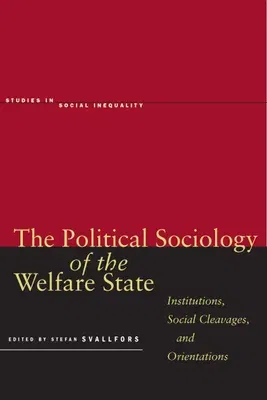The Political Sociology of the Welfare State: Institutions, Social Cleavages, and OrientationsHardcover, 13 June 2007

Qty
1
Turbo
Ships in 2 - 3 days
In Stock
Free Delivery
Cash on Delivery
15 Days
Free Returns
Secure Checkout

Part of Series
Studies in Social Inequality
Part of Series
Studies in Social Inequality (Hardcover)
Print Length
312 pages
Language
English
Publisher
Stanford University Press
Date Published
13 Jun 2007
ISBN-10
0804754357
ISBN-13
9780804754354
Description
Product Details
Book Format:
Hardcover
Country of Origin:
US
Date Published:
13 June 2007
Dimensions:
23.83 x
16.48 x
2.31 cm
ISBN-10:
0804754357
ISBN-13:
9780804754354
Language:
English
Location:
Stanford, CA
Pages:
312
Publisher:
Weight:
571.53 gm